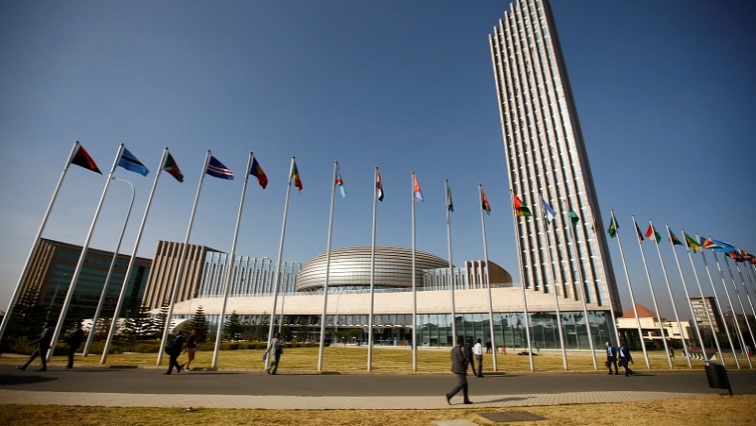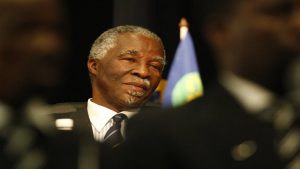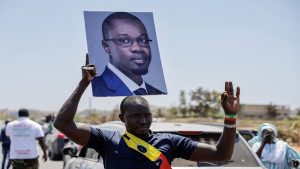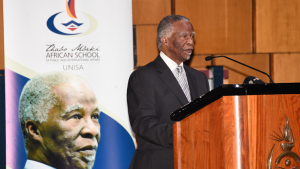On 25 May, our continent celebrates African Unity Day – better known as Africa Day. The day marks the commemoration of the founding of the Organisation of African Unity (OAU) on 25 May 1963. In only a dozen countries, sadly, Africa Day is a statutory public holiday. The day is supposed to provide the opportunity to acknowledge the achievements of the peoples and governments across the continent.
The fact that a mere twelve countries out of 55 member-states of the OAU’s successor, the African Union (AU) recognise Africa Day utterly leaves me in a fit of pique.
How dishonest, short-sighted, ill-advised and self-delusional can the AU be by paying lip service to a course they claim to champion?
How can the AU look itself in the mirror and be proud that they are keeping the legacy of the founding fathers of Africa?
For the uninitiated, the twelve countries that recognise Africa Day as a public holiday are as follows: Ghana, Mali, Namibia, Zambia, Zimbabwe, Angola, Chad, Comoros, Equatorial Guinea, Lesotho, Liberia and Mauritania. This is a crude fact!
AU’s Agenda 2063 – “the Africa we want” – is the continental blueprint aimed at achieving inclusive and sustainable socio-economic development over a 50-year period.
My question is: How does the AU expect to achieve its stated goals when the continent under the current AU leadership remains fragmented and disjointed?
There is hardly any evidence of unity of purpose by Mother Africa. The Francophone parts of Africa seem still loyal to their former colonial master, France. The Anglophone parts of the continent, mainly in Sub-Saharan, lack any iota of a common purpose doctrine. Mozambique would rather summon military assistance and the requisite intelligence from Rwanda than SA next door. We live a lie in this continent, and our attitude and abysmal behaviour towards a hugely crucial day in our calendar, 25 May, a day of unity, is proof of our delusions of grandeur.
No wonder even at the UN General Assembly, or UN Security Council, we hardly ever vote as a bloc. Our disunity is laid bare in the rarefied atmosphere of New York. The Global North always dangles its wealth in the dark to individual AU member-states in return for their support in dubious Western foreign policy positions.
Ukraine is a case in point. The invasion of Iraq by the US in 2003 is another. So is the immoral, illegal occupation of Palestine by apartheid Israel. The nauseating list is endless.
In fact, so mind-boggling are some of the decisions of the AU that it is difficult not to think of Africa as one huge joke of a billion people. Take for instance the diabolical decision to grant the State of Israel observer status at the AU HQ in the Ethiopian capital, Addis Ababa. Clearly, the decision was not taken through a consensus, judging by objections from various countries including South Africa. To say extending such a privilege to Israel leaves much to be desired is an understatement.
Thabo Mbeki, one of the protagonists in the transformation of the OAU into the present-day AU, sought through his much-revered African Renaissance agenda to advocate for Africa’s self-determination, unity, identity and shared development.
The African Renaissance, a concept meaning that the African people shall overcome the current challenges confronting the continent and achieve “cultural, scientific and economic renewal”, was first articulated by Cheikh Anta Diop in a series of essays between 1946 and 1960. Mbeki takes huge credit for popularising the concept in latter-day Africa.
Since Mbeki’s departure from public office and reduced participation in continental politics post his presidency, the African Renaissance agenda has quite literally taken a backseat. Notably, not all African leaders embraced its ethos, particularly the African Peer Review Mechanism. This was supposed to be a platform where dictators could be called out, thieves removed from office, coup leaders isolated and enemies of democratisation shunned, among others.
By all accounts a noble initiative. It sought to ameliorate the lives of ordinary Africans by holding their leaders, particularly the way-ward lot, accountable. Pity, it never saw the light of day. In social sciences, this is often referred to as “the disordered faults of progress”.
On 8 May 1996 former SA President Mbeki articulated during his much-heralded “I am an African” speech some wise counsel. He said: “The evolution of humanity says that Africa reaffirms that she is continuing her rise from the ashes. Whatever the setbacks of the moment, nothing can stop us now! Whatever the difficulties, Africa shall be at peace!” Powerful words from a hidden poet within Mbeki. Words of wisdom indeed. Undermined only by African leaders who, until this day, seem to represent only their jackets more than they do the people who vote them into power, wherever free and fair elections take place.
It is my honest belief that at the helm of the AU, it has to be put on the agenda as a matter of extreme urgency that Africa Day ought to be a public holiday from Cape to Cairo, Morocco to Madagascar.
AU member-states need to adopt a binding resolution that would make it compulsory for all African governments across the continent to stay at home and observe 25 May through a flurry of activities aimed at honouring the vision of our forebears. Such a development would also encourage Africans in the Diaspora to observe the holiday in a similar fashion. It has to start with the willingness of the African leaders to walk the talk. It is not enough to make Africa Day statements and run to work. We need to emulate the courageous twelve countries who observe 25 May as a public holiday.
How can the international community take Africa seriously when Africa does not take herself seriously? A common agenda starting with declaring Africa Day a public holiday would lead to other progressive developments such as a single currency for the entire continent, similar to the Euro for the Europeans.
Once Africa adopts a common stance based on common interests, and unity of purpose, I foresee free economic zones emerging that would foster strong continental trade aimed at enriching the citizens.
Africa is a wealthy continent with natural minerals that are not found in other continents. The time is now to leverage our riches, and unity, as Mbeki observed. Unity is strength. United we stand, divided we fall.






